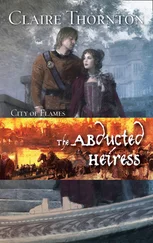“I’m mainly covering the Petrobras oil scandal and the impeachment proceedings,” he admitted, “but the forest code interests me personally. I’m trying to build a story that will gain enough readership to publish.”
Gustavo waited silently. He didn’t have any advice on how to make Brazilians care.
“A statement from you would mean a great deal,” the man explained. “Perhaps enough to make a difference.”
Gustavo only wished to be left alone to grieve for Zé and Maria and stew in hatred, but he knew these selfish activities achieved nothing. He rose and nodded to the bureau chief. As they headed for the stairs together, another journalist followed them, armed with a pencil and notepad. Yet another pulled out his cellphone and started recording video as they reached the Senate chamber floor.
A few of the senators had left for the break, but many remained to chat or answer emails on their laptops. Gustavo spotted the rural bloc senator in a large group of cohorts. His face was a caricature of competence and fraternity as they showered him with congratulations on his speech. When the senator locked eyes with Gustavo, his mask fell away in his surprise. Gustavo stepped up to the microphone with a look that said, Now it is my turn. More and more journalists gathered below him.
Gustavo described the aftertaste of a poisoned river: the bitter metal of mercury and the sour burn of pesticides. The taste, and the floating fish, only came after your children had already drunk their fill. Gustavo described acres of smoking ash that had once been verdant forests noisy with animals. The death of the forest was also the death of life for hunter-gatherers like the Wayãpi and harvesters like Zé and Maria.
He lifted the Walking Dead List in one hand and described a pile of bones. If he were to reach in, he might pull out the jawbone of Sister Dorothy Stang, an American nun who taught sustainable farming to the rural poor renting federal land. She was shot with all six bullets of a revolver from a gunman hired by a rancher. The jawbone was still and silent, no longer giving voice to their cause.
Reaching in again, Gustavo might pull out a femur from one of the “root collectors” who illegally cut down and burned the forest. These men were rarely the ones who profited. Some were easier to kill and bury in shallow graves. In death, they joined the dead zones of forest they had burned.
Before reading off the names of his list, Gustavo thought of the senator from the rural bloc.
“Meus amigos,” he said, slapping the list over his heart.
Amapá, Brazil April 3, 2019
THE FIRST THING Gustavo remembered in that small stretch of wretched time was anger—his usual kind, which is to say nothing of the blinding rage that came later. It was the road sign that caused it, the one along the drive from Wayãpi lands to the frontier town of Pedra Branca do Amapari. The sign stated that the lands were protected, but what was stated was not the reality.
The southern half of the Wayãpi’s designated territory lay within the RENCA reserve, which housed the world’s largest remaining forest as well as deposits of gold, manganese, iron, and copper. In 2017, Brazil’s president tried to abolish the reserve’s protection but was luckily, blessedly, blocked by a federal judge. That same year, an illegal mine was shut down a mile from a Wayãpi village. Several years later, the fight was still the same.
“Our warriors have guns like the Brazilians,” Gustavo’s twin brother, Tuír, called out.
He sat in the back seat of Father St. John’s jeep, blinking with the wind and pulling long strands of hair from his eyes.
“We have bows and poison-tipped arrows. We are brave and will fight to the death!”
Gustavo sighed. Yes, the Wayãpi men were brave, but the rifles the government had given them were decades old and their bows weren’t real, not like the Grandfather People made them. Father St. John said that the government had many methods to keep Indigenous villages under control. This particular method started with gifts from the modern world: matches that saved a family from the tedious chore of starting a fire with a spark; manufactured cloth that saved them from having to grow cotton, spin it into yarn, dye it with urucu , and weave it into fabric; rifles with bullets—but only in exchange for their bows and arrows.
Villages grew dependent on these gifts as their traditional ways of survival were forgotten. And then the matches ran out, the fabrics tore, and the rifles needed more bullets. Indians had to obey the government and watch helpless as the boundaries of their lands shrank.
Gustavo leaned over from the front passenger seat to hand his brother a bundle of clothes. They were almost at the edge of town. Tuír grumbled as he struggled to find the armholes of the shirt. He wasn’t used to white-man clothes, but then he wasn’t used to Father St. John, automobiles, or the town of Pedra Branca do Amapari. He definitely wasn’t used to running for election to the town’s city council.
“There is more than one way to do battle,” Gustavo told him. “We have no say about what happens to us until we can get an Indian in government.”
He turned back around as Tuír pulled on khaki shorts and removed his loincloth. Father St. John kept his bespectacled eyes on the rough terrain ahead and let the brothers yell at one another in Wayãpi.
“Why don’t you do it?”
Tuír asked this just as Gustavo was checking his cellphone for a regained signal.
“It needs to be a Wayãpi who lives with our people in the forest,” Gustavo replied.
What he meant was, it should be a real Wayãpi and not one who had to leave the traditional ways to try to save them. Gustavo barely remembered his true name. Too often, he thought of himself by his Portuguese name, the one a missionary gave him with a shrug, as if to say, Why not?
“I am the voice of our tribe with poetry,” Gustavo called out. “You need to be the face.”
Tuír laughed and said they had the same face. He wasn’t one for metaphors.
“I do my share,” Gustavo insisted. “That’s why I get the death threats. Not you .”
“You do for the other Indians,” Tuír countered. “You even do for Brazilians more than you have ever done for Wayãpi.”
There was truth in this. Gustavo had fought for the land rights of Indigenous peoples and peasant farmers alike. Father St. John insisted that allies needed to unite, or it would be hopeless. It had to be all of Brazil’s powerless united against mass destruction and exploitation by loggers, miners, agribusiness, cattle barons, and oil refiners. This battle took Gustavo away from Wayãpi lands. It took him to the trade union leader of the rubber tappers, Chico Mendes, before he was murdered. It took him to Zé and Maria when they were still alive. It had taken him to Paris and to Washington, DC. In the meantime, Gustavo didn’t recognize Tuír’s two sons as they grew unseen.
Father St. John pointed to a gas station coming up on the side. He needed to refill before they headed into town to his modest parish, where he and Gustavo now lived when they weren’t traveling. All three men got out of the jeep after he parked. The priest disappeared into a small store to pay for gas at the register.
“Make a real bow,” Gustavo said to his brother.
Tuír gritted his teeth and shook his head. He said he didn’t want a bow. He could hunt so much more easily with a rifle. He needed to use bullets now that the animals had grown scarce.
“Make another bow,” Gustavo insisted. “Try.”
“You don’t remember how hard it is,” Tuír said. “You have to find the perfect wood near the Capoeira headwaters. It needs to be shaved down with the jawbone of a white-lipped peccary. When we lived by the Nipukú River, there were herds of them in the forest. My sons have never seen a single peccary in their lives—”
Читать дальше












